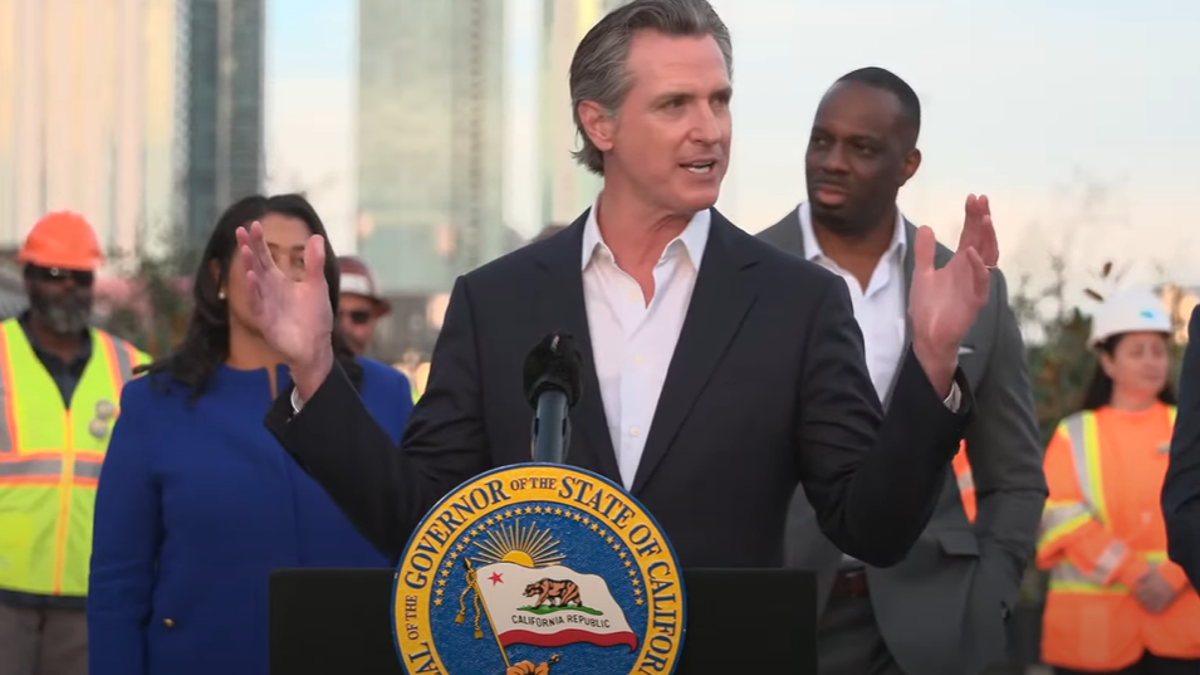'The Big Weekend Show': California eatery owners express fears over minimum wage hike
'The Big Weekend Show' discuss the impact of California's $20 minimum wage going into effect.
California Governor Gavin Newsom strikes again. Effective April 1, the minimum wage for fast food workers increased to $20 an hour, making California the highest minimum wage in the United States. Recently, the price of a Big Mac meal at a McDonald’s location in the wealthy town of Darien, Conn., hit $18, and it’s quite possible that across California it won’t be long before a Big Mac alone costs $18 or more in the Golden State. Hold the sesame seeds please!
These cost increases are so sharp that even McDonald’s CEO Chris Kempczinski said on the recent company’s earnings call in February that McDonald’s is having a harder time pulling in lower-income customers. Middle class customers aren’t far behind.
With ground beef prices up almost 6% year over year and double the rate of normal inflation, this Gavinomics move of a 25% increase in wages is sure to cost more fast-food workers their jobs to only be replaced by AI. It could crush the middle class so dearly that they’ll have to find other food alternatives after being priced out of Burger King and Panera Bread.
SOCIAL MEDIA ERUPTS, ACCUSES GOV. NEWSOM OF PUSHING 'SURVEILLANCE STATE' WITH NEW ANTI-CRIME POLICY
Here are a couple of economic realities. When you hear inflation is coming down, it doesn’t mean prices are coming down. It just means they are going up slower. When you hear labor costs are going up by 25%, it doesn’t mean Wall Street corporations will sacrifice profitability because they won’t.

California Gov. Gavin Newsom's Gavinomics means a 25% increase in fast-food worker salaries, which makes food too expensive. (California Governor Gavin Newsom YouTube channel)
They will raise prices to compensate for increased labor costs, make the workforce more efficient to keep expenses in check, or a combination of both. Publicly traded companies have an insatiable appetite for profits, and they have a responsibility to focus on shareholder return.
There have been many studies done over the years on the effects of minimum wage increases by researchers, including Card and Krueger in 1994, Wascher and Neumark in 2000, and Dube, Lester, and Reich in 2010. After all the analysis, these studies show that a 10% increase in the minimum wage reduces employment by about 2%.
What’s the reason for special treatment in California of fast-food workers versus other workers in the restaurant business? The best evidence from this research clearly shows that minimum wages don’t reduce poverty, and the job-loss effect to the middle-class and increased prices on the wallets of the middle-class only make things worse.
CLICK HERE FOR MORE FOX NEWS OPINION
You are previewing the Gavinomics that you’ll likely see more of in four years. In California, corporate and franchised-owned restaurants with more than 60 establishments now require this $4 increase (or more importantly, a 25% increase). Starbucks, Auntie Anne’s, McDonald's, Chipotle, Pizza Hut and Cinnabon just to name a few.
California already has the second-highest unemployment in the United States at 5.2%, which is more than 25% higher than the national average of 3.9%. California is already facing a record $68 billion dollar deficit. Electricity prices are double the national average. And, as we know, California has the highest state tax in the country at a maximum of 13.3%. Are these the economic numbers we want to see in our future?
There’s no question that the prevailing federal minimum wage of $7.25 an hour that has been unchanged since 2009 is not a livable wage for anyone in America, especially with the last three years of crushing inflation. That needs to be improved and changed. But raising the minimum wage does not automatically guarantee workers higher income, employment, and welfare security in the long run.
Thomas Winberry, an Assistant Professor of Finance at The Wharton School asked a key question in a study several years ago. "How easy or how hard is it for an employer [in fast food] to replace or substitute away from that worker?"
CLICK HERE TO GET THE FOX NEWS APP
California already has the second-highest unemployment in the United States at 5.2%, which is more than 25% higher than the national average of 3.9%. California is already facing a record $68 billion dollar deficit.
Time will tell underneath this new version of fast-food Gavinomics in California, but what’s likely to be the trending outcome for Californians are higher prices, higher unemployment, and another move that feels good to people on the surface but won’t move the needle financially for middle-class Americans.
That next happy meal you buy in California won’t make hard-working Americans so happy.











































